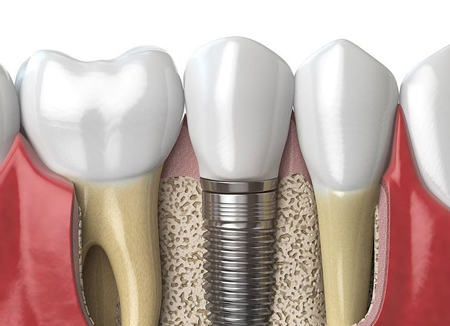Do I Need a Tooth Root Removed That Broke During Extraction?
Posted by AllSmiles
When my dentist removed my upper left first molar, part of the tooth root broke off. My dentist referred me to an oral surgeon to remove the root. Is there any harm in leaving the root in the socket? How common is this, anyway? I’m a little frustrated that my dentist could have referred me to a surgeon in the first place. He wounded so confident about the extraction that I trusted him. Thanks. Leander from S. Dakota
Leander,
Part of a tooth root may break during tooth removal because of the root shape or challenges removing the tooth; it is not uncommon. If a dentist realizes a root fragment is left, they may refer you to a specialist. Other dentists use an X-ray to anticipate the complexities of extraction and may refer you to a specialist upfront for tooth removal.
Do You Need to Remove a First Molar Tooth Root?

If a dentist leaves a tooth root behind after extracting an upper first molar tooth, the root can poke the sinus, resulting in sinus perforation. Leaving the tooth root in the socket for months increases complications and risks. Sinus perforation surgery can be complex and requires the skill of a specialist.
We recommend getting a second opinion right away. If the tooth root is too close to the sinus wall, a specialist may decide to leave it. Otherwise, the surgeon will remove it promptly.
If you are considering a dental implant to replace the missing first molar tooth, talk to the surgeon about it. Depending on the condition of the tooth socket and your sinus, the surgeon may recommend a bone graft or sinus augmentation procedure to prepare the site for an implant. A dental implant needs enough quality bone to support an implant crown. Caring for the socket now can prevent the need for another surgery later if appropriate. Ask the specialist about your options.
Dr. Thaddeus Michalski, a Rocky Hill, Connecticut dentist and Diplomate of the International Congress of Oral Implantologist, sponsors this post.


